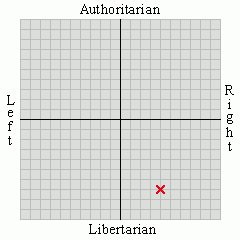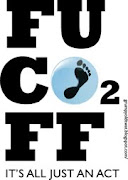Actually a question the
Daily Fail should have fucking asked before it printed
this:
Only 20 years left? Sensational pictures of Australia's Great Barrier Reef bring home the natural treasure we look to lose.
...
A recent report by marine scientist Charlie Veron claimed that global warming will destroy the World Heritage site within just 20 years.
The former chief scientist of the Australian Institute of Marine Science says that CO2 levels have risen so much it is now impossible to save the natural structure.
'There is no way out, no loopholes,' he said. 'The Great Barrier Reef will be over within 20 years or so.'
Twenty years, huh? That's a nice hard prediction we can come back to in the future to add to Gore's prediction that the North Pole will be ice free in
five, ooops that was August 2008, so just
four years actually. Oh, and the one hundred months to save the planet that the
Prince of Wailing was going on about not so long ago. Except of course that time has moved on and it's eighty-eight months now. I hope we're all marking our calendars.
And the marine expert is not alone in his gloomy predictions - nor the most extreme.
Sir David Attenborough warned at a meeting of wildlife experts in July that all of the world’s tropical reefs face ‘imminent destruction’ unless CO2 levels are slashed.
Hopes that cutting emissions will be enough to save our natural world have been dashed by marine experts. They say we must now find ways to remove gas already in the atmosphere.
As well as their exceptional beauty, coral reefs are one of the richest eco-systems in the sea, providing homes to over a million species.
Their abundant life is a valuable source of food for millions of people and provides thousands of jobs by supporting a huge tourism industry.
But the precious structures, built by a battery of tiny organisms called corals polyps, are especially vulnerable to man’s impact on the environment.
Slow increments in levels of CO2 are gradually making the oceans more acidic and dissolving coral in the process.
And temperature rises caused by the same emissions are bleaching the coral, as the beauty fades.
So, to the question the
Fail missed the opportunity to ask
what others asked over six months ago: given that corals have existed for about half a billion years and also that both CO
2 levels and temperatures have been
much higher in the past, how come there are any corals at all to worry about now? No, come on, someone explain to me how corals, if they're that fucking delicate, survived temperatures getting on for 10˚C higher and CO
2 levels ten times greater than now. I assume we can dismiss the idea that corals have in fact been extinct for longer than the dinosaurs and are really figments of our imagination, so what does that leave? Seems to me that either corals have become much less hardy and less adaptable creatures than they were in the past or they have mechanisms to survive such changes and we're crapping ourselves for no good reason. Again.



















2 comments:
"I hope we're all marking our calendars."
No, I ditched the calendar a while ago - cost me too much in Tippex. I'm using an Etch-a-Sketch now... :)
How very ecologically sound of you, Julia. Doesn't need plugging in and wastes no paper. ;-)
Post a Comment